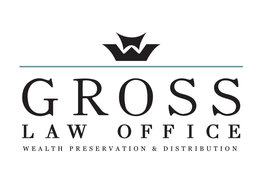Blog
What You Need When Meeting With Your Minnesota Estate Planning Attorney
A lot of information is needed when creating a complete and thorough estate plan. You will need to provide information about property, your family, your business, and your wishes during your life and after. When you make your appointment, you can ask for a written list of important documents and information that you need to bring to your first estate planning appointment.
What To Bring
The following is a breakdown of the usual things to bring:
Family Information
You can list the names and birth information of your immediate family members. You can also include stepchildren and grandchildren. If you have a young adult child with special needs, you will need to provide information about their financial needs in the event you pass away.
Property Information
Gather together a real property description, information about your ownership interest, the address of property, how much is left to pay on the mortgage, the market value, and the most recent tax assessment.
If you have personal property that has value, such as jewelry and vehicles, make a list that includes a description of each item, where each item is physically located, and what your stake is in the ownership of each item. You will also need to provide market value and if any liens exist against the property.
Financial Information
You will need to have a list of all financial accounts. This includes savings bonds, checking accounts, savings accounts, life insurance policies, 401(k) plans, IRAs, 403(b) plans, pensions, and social security. You will need to have account numbers, current balances, a list of beneficiaries for retirement accounts, and the balances of outstanding loans. If you have any family members that owe you debts, gather that information as well.
Business Information
If you own all or part of a business, make sure you provide documents showing your ownership, where the business is located, and who to contact. You will also need to provide the profit and loss statements for the past 2 to 3 years.
Questions Your Minneapolis Estate Plan Lawyer Will Ask
Your estate plan lawyer may ask:
- Who do you want to designate as beneficiaries?
- Do specific individuals receive certain pieces of property?
- Is there anyone you don’t want to be a beneficiary?
- Are you an organ donor?
- Do you have specific wishes for your funeral?
- Do you wish to be cremated or buried?
- Do you plan to bequeath assets to a nonprofit?
- Who would be the guardian of your minor children?
- Who is your second choice of guardian for minor children?
- Who do you want to be the executor of your will?
- Who would you like to be the trustee of your trusts?
- Do you want to establish a health care directive or power of attorney?
- What are your desired arrangements for any special needs children?
The questions that your attorney asks will depend on your specific situation. No two estate plans are exactly the same, so your estate planning attorney will review your wishes, financial situation, and assets to determine the proper route for you so you can protect your legacy and wealth.
